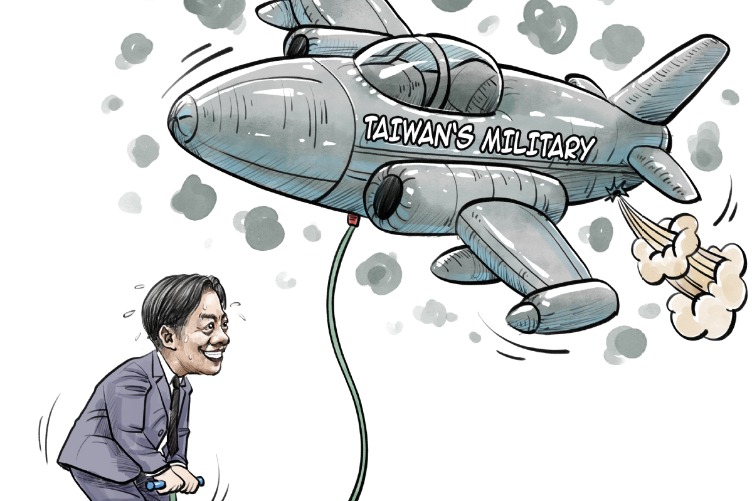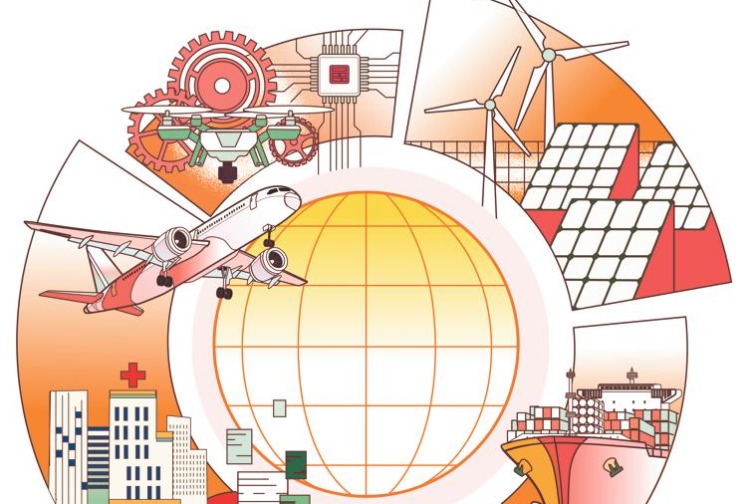Experts' take on China's fiscal and tax reform


Transfer payment system needs improvement
By Yang Zhiyong
The 2023 Central Economic Work Conference proposed a new round of fiscal and tax system reform. Together with other major measures to further deepen reform, this will facilitate high-quality development and strengthen Chinese path to modernization.
The fiscal and tax reform of 1994 not only helped establish a fiscal and tax framework that basically adapted to a socialist market economy, but also promoted China's economic and social development. To be fair, the fiscal and tax system established in 1994 is still effective. But deepening of fiscal and tax system reform in the new era meets the requirements for the modernization of the national governance system and governance capability.
Now the reform, if conducted, should cover a wide range of aspects, with the two most important being the relationship among financing, the market and society; and the relationship between governments, especially the fiscal relationship between the central and local governments.
Handling the relationship between the government, the market and society requires a reasonable definition of the government's functions. Based on this, the relationship between financing, the market and society can also be defined. Under the socialist market economy system, the market plays a decisive role in resource allocation, and the government's role should ensure the fair and orderly functioning of the market.
All matters concerning government revenue and expenditure, government assets and liabilities, and the movement of government funds are fiscal matters. Hence, fiscal and tax reform requires the coordination of all fiscal resources.
The coordination of fiscal resources covers all aspects and requires breaking through various related interest patterns. The reform is a difficult process, but as long as the goal is clear and the direction correct, fiscal and tax reform will eventually be achieved.
In a vast country like China, handling the fiscal relationship between governments requires the adherence to the direction of the tax-sharing fiscal management system reform and the establishment of a tax-sharing fiscal management system with Chinese characteristics. The goal of the tax-sharing reform is to further regulate the fiscal relationship between the central and local governments.
Forming a hierarchical fiscal system under the leadership of the central government, in accordance with the principle of matching fiscal powers with expenditure responsibility, is of the utmost importance. Such a system ensures fiscal sustainability at all levels, and guarantees fiscal support for public projects undertaken by governments at all levels.
The economies of scale and scope in taxation determine that larger scale fiscal resources are concentrated with the central government. This is not a problem; on the contrary, it's a good thing for a country that needs to achieve equality in public services across regions. The central government thus has sufficient fiscal resources to provide transfer payments for financially weak regions in the central and western parts of the country, thereby promoting equality in public services.
Tax-sharing is not just about dividing taxes between the central and local governments but also about providing tax revenue for local governments in accordance with their respective functions. China has 18 types of taxes, and quite a few of them provide tax revenue for the local governments, but still those are not enough to meet the needs of local governments.
The main source of income for local governments is shared taxes — the taxes shared between the central and local governments. Value-added tax, corporate income tax and personal income tax revenues are the most significant sources of tax revenue for both the central and local governments. If China's tax system does not undergo fundamental changes, this pattern will remain unchanged. So we need to re-recognize local taxes.
Any tax that provides revenue for local governments, including shared taxes, can be considered as local taxes. Following this logic, improving the local tax system becomes feasible.
In reality, central-to-local transfer payments have promoted the "three guarantees" — guaranteeing people's basic livelihoods, wages and functioning of society — at the grassroots level. The role of transfer payments cannot be overemphasized.
But central-to-local fiscal transfer payments need to be further standardized. Without appropriate rules, transfer payments may breed laziness. This obviously needs to be prevented. Therefore, it's necessary to further improve the transfer payment system, appropriately determine the scale of transfer payments, and let transfer payments play their proper role.
General transfer payments and special transfer payments both have important roles, and neither should be favored over the other. In this regard, although special transfer payments have been criticized, they are more conducive to the implementation of central policy goals.
The task of establishing a modern fiscal and tax system with Chinese characteristics is difficult. It cannot be accomplished overnight; it requires careful planning and step-by-step progress. And this is the right time for planning a new round of fiscal and tax system reform.
The author is director of the Center for Public Finance and Taxation Research, Chinese Academy of Social Sciences. The views don't necessarily represent those of China Daily.
If you have a specific expertise, or would like to share your thought about our stories, then send us your writings at opinion@chinadaily.com.cn, and comment@chinadaily.com.cn.































